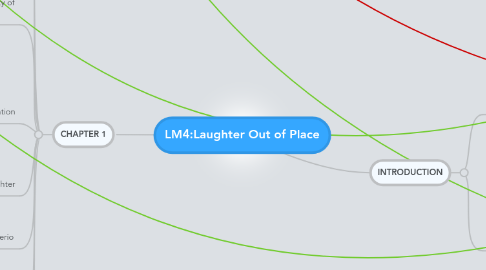
1. CHAPTER 1
1.1. May 1995. Goldstein returns to Brazil. Finds her friend Soneca at the bar. Greets her with news that Zeca died. Goldstein is shocked and sadden however Gloria laughs "teasingly".
1.2. Describes Felicidade Eterna. The favela where Gloria and her family live. Which in English means "Eternal Bliss". However, sounds far from it.
1.3. First Arrival
1.3.1. Golstein Arrived at the end of 1990. For her dissertation research.
1.3.2. She was stunned by the poverty and distinct division of social classes in Rio.
1.3.3. Rio is a city of contrasts.
1.4. Scholar in Training
1.4.1. In 1990, went to do research on the former capital and slave trading center: Salvador, Bahia.
1.4.2. Arrived at a time where AIDS awareness was an big issue in Brazil
1.4.2.1. Changed the focus of her research to the effects of AIDS epidemic of low income women.
1.4.3. Wanted to study poor women because the middle and upper class colleagues did not understand the lives of the poor.
1.5. Carnival: The Ephemerality of Laughter and Forgetting
1.5.1. Carnival is a time when rich and poor interact with each other. Time to forget about the social norms.
1.5.2. Carnival is both conservative and liberatory
1.5.3. Carnival is not the" truth". Everyday life of people in the Favelas is the truth.
1.6. Habits of class and domination
1.6.1. Use laughter to oppose Brazilian ideologies.
1.6.2. "Taste" of humor underlines the real issue at the core of everything "Power".
1.7. Return to Laughter
1.7.1. Soneca gives a perfect example of power struggle when she tells Goldstein that when she questioned about her brothers health all the doctors said was"who is the doctor here you or me? The doctors let her brother die.
1.8. Rediscovering Rio e Janerio
1.8.1. Gloria takes her to her favela so that Goldstein can really see how the people live.
1.9. Writing Ethnography, Writing Poverty
1.9.1. Goldstein's colleagues do not agrees with her research in the favelas. Believe that it is something has already been studied and is of little importance
1.9.2. Goldstein's goal is to inform the reader of the life of this group of people which many know little and care little for.
1.10. A Brief History of Brazil
1.10.1. 1500 Pedro Alvares Cabral arrives in Brazil from Portugal.
1.10.2. The first families were important in sharing information between the King of Portugal and the people of Brazil. We start to see how the elite upper class gain power
1.10.3. Brazil becomes a sugar producer
1.10.4. Imported many slaves from Africa for sugar production
1.10.5. 1807:Portuguese royals were forced to flee to Brazil
1.10.6. 1888 Slavery ended
1.10.7. One of the major reason for inequality in Brazil is high inflation and that they never had a realistic program for agrarian form.
1.10.8. 1988 Brazil's constitution is drafted. Based on equal rights and protection for its citizens. However this is not practiced and so a major factor in the inequalities that are experienced in the country
1.10.9. Politicians have no idea what people in the favelas are living because they have never spoken to them. And their politics only benefit the upper class not the poor.
2. INTRODUCTION
2.1. THEME1:
2.1.1. Power Relations and how they are experienced by the poor
2.1.1.1. The poor are forced to express their resistance behind the backs of power
2.1.1.2. Because of their laughter out of place the poor are made to seem like an "alien within" by the upper class.
2.1.1.3. Primarily relates her encounters with the people who live in favelas
2.2. Theme 2:
2.2.1. Humor
2.2.1.1. Functions as a weapon of the weak
2.2.1.2. Both conservative and liberatory
2.2.1.3. allows for individuals to talk about matters that are naturalized, unquestioned, or silenced.
2.2.1.4. Black humor a discourse created by the poor and used against the wealthier class.
